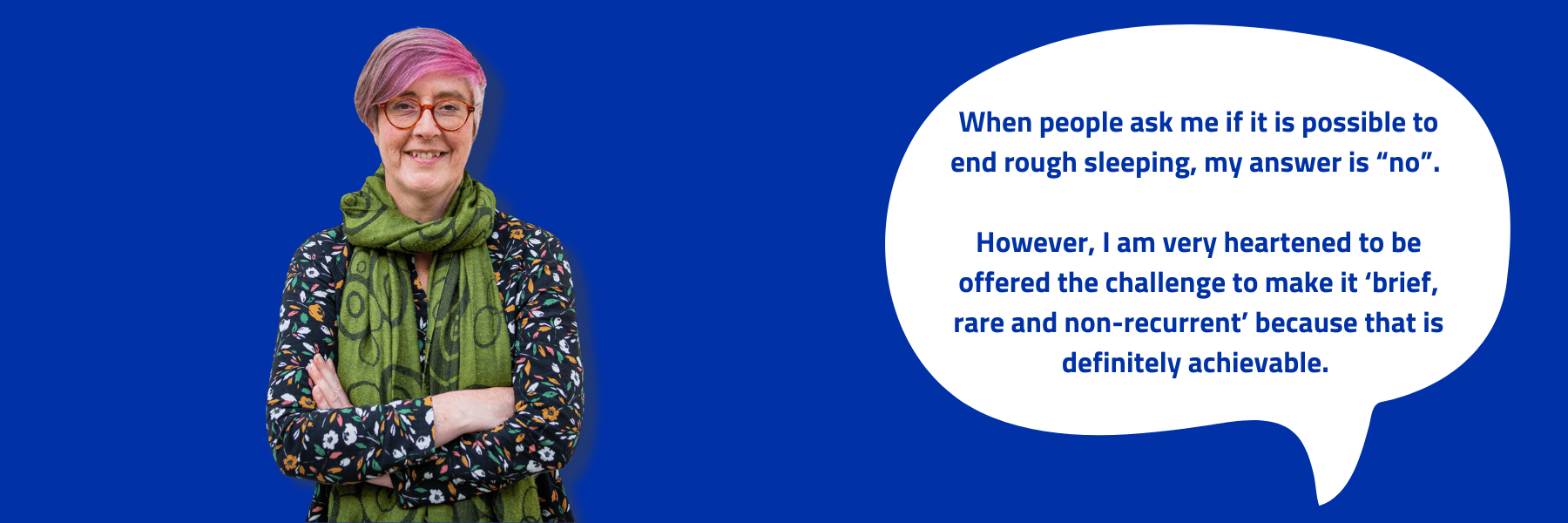
In theory, homelessness is simple to solve.
If someone is rough sleeping, countless charities exist to provide support and accommodation, such as The Connection at St Martin’s. At our day centre, we provide everything from hot meals to employment advice, to support people in finding their way home. This should empower people to undo the causes of their homelessness and go back to living as normal.
But who defines ‘living as normal’ and who is responsible for undoing homelessness?’
The truth is, there are many systems of support in place for people rough sleeping. But who they are designed by and for can largely impact their effectiveness and in some cases, only lead to further issues.
Take the meals we provide for instance. Aside from combatting the most visible effects of homelessness, they help to make people feel comfortable in our spaces, something many of our clients have never experienced. This enables us to form meaningful connections with the people we support to gain their trust and work together towards a more stable future.
But what if we had no Halal/Vegetarian options? 1 in 10 people facing homelessness are Muslim and so we need to make sure our spaces are inclusive to their needs.

Additionally, most of the people we work with have experienced trauma – whether this is from homelessness itself or other events. While we take a trauma-informed approach to our work, without the right guidance and input from people with lived experience, we risk causing more trauma within the systems meant to support this group.
Failing to consider the uniqueness of people’s experiences and backgrounds can lead to further isolation. People may gain the sense that support isn’t accessible to them as it was designed for a more ‘mainstream’ population.
This is where the issue with how to solve homelessness lies. Every single person we see that come into our centre needs a unique support plan which takes time to build as we learn their needs. During this time, the relationship with our team may vary as we discover what input they find helpful or distressing.
Additionally, the people we support aren’t passive – and nor should they be. They are actively involved in their recovery from homelessness with us and so if someone experiences a tough night on the streets or another setback, their progress can be put on hold.
All this can be affected by larger external events, such as reported recent cuts to funding in London. This means when people are finally ready to receive support, it may not be available to them.
So how can we solve homelessness?
It’s clear there is no simple answer to this question. However, we will continue to work with people on their own terms to ensure that they are truly uplifted by support systems in a way that reflects their needs by directly involving them.
At the same time, we’re advocating for systems change to ensure this approach is used more widely. Afterall, homelessness can’t be tackled with a ‘one-size-fits-all’ approach.
Perhaps the difficulty in solving homelessness is put best by Pam, our CEO:

The issue of homelessness has a lot to unpack. In order to solve it successfully, we must walk before we can run to ensure minimal hurt is made to the people we support.

